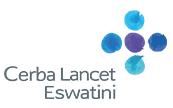HIV Testing
2022-08-30
HIV:Diagnosis Of HIV -1/2 Infection In Individuals > 18 Months Old
HIV-1/2 is diagnosed either by detecting HIV- specific antibodies or the virus itself. In individuals >18 months old the detection of HIV-specific antibodies remains the recommended method for routine diagnosis.
A) Antibody Detection
- 4th generation HIV-1/2 ELISA Detects HIV-specific antibodies and p24 antigen (a component of the virus) simultaneously. Window period: ± 18 days.
- Rapid HIV-1/2 Detects HIV-specific antibodies. (There are many different rapid tests available. Only those with high sensitivity and specificity, and FDA/CE marking should be used.) Window period: ± 24-28 days.
- According to WHO guidelines, all positive HIV results should be confirmed with: A second test on the same specimen.
- Repeat testing on a second specimen. (Although the ELISA has a sensitivity of close to 100% and specificity of ± 99.6%, the serious nature of HIV warrants confirmatory testing.)
B) P24 Antigen Detection
- The p24 antigen is detectable from approximately 2 weeks after infection.
- During the seroconversion phase it is detected in the majority of patients.
- However, when high levels of HIV-specific antibodies develop, the p24 antigen usually becomes undetectable.
- A negative p24 result does not exclude HIV infection. Specific p24 antigen testing may be used to detect an acute infection, but should not be used for routine diagnosis.
